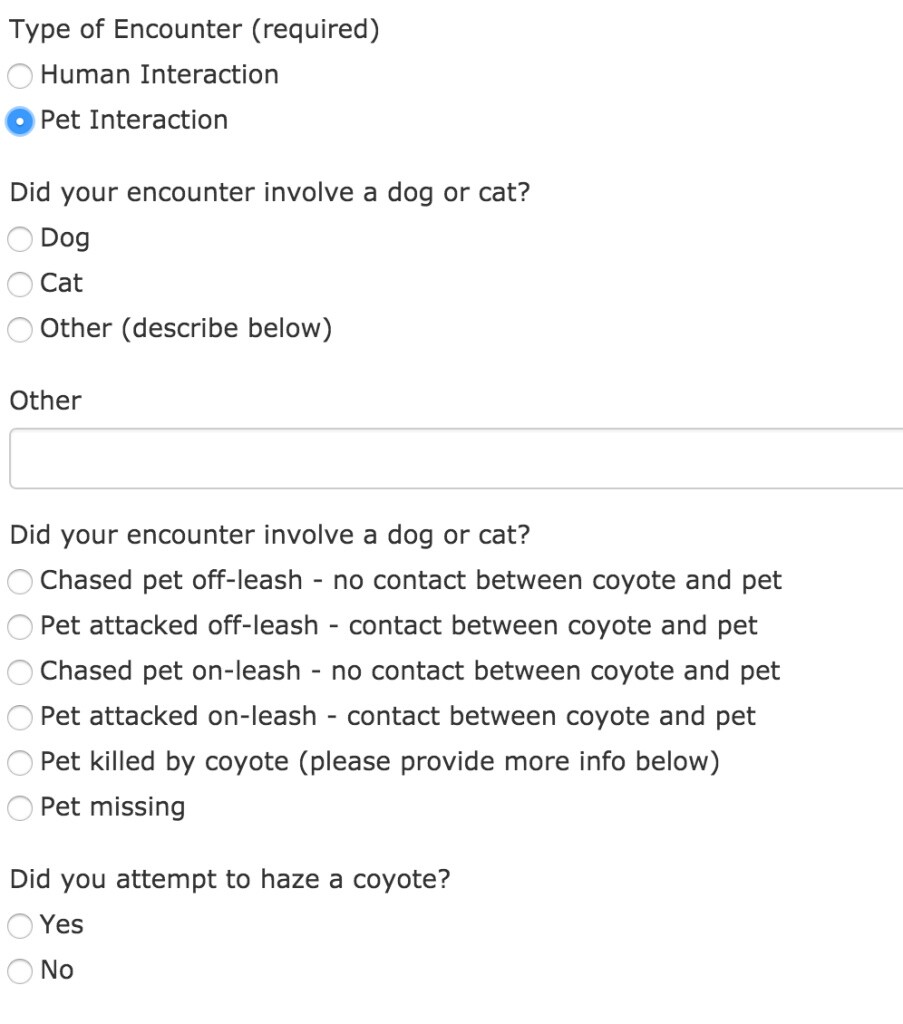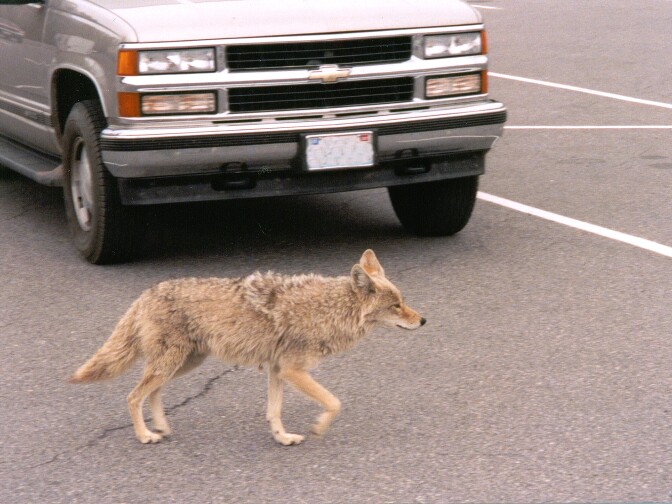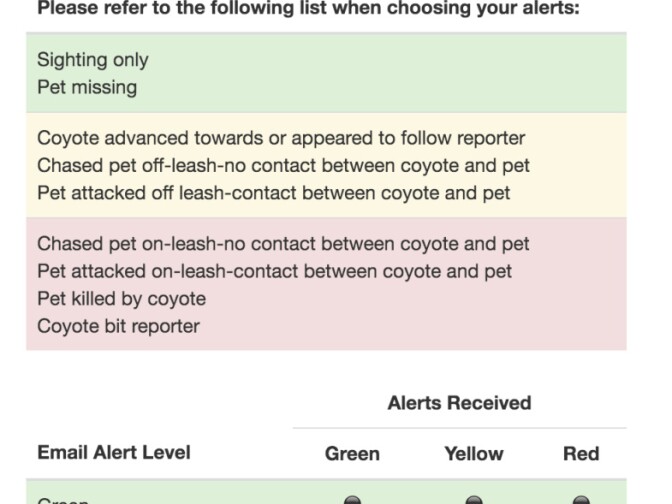This story is free to read because readers choose to support LAist. If you find value in independent local reporting, make a donation to power our newsroom today.
This archival content was originally written for and published on KPCC.org. Keep in mind that links and images may no longer work — and references may be outdated.
New app lets anyone report and get alerts about coyote sightings
You’re walking your dog early in the morning, when suddenly, she begins to growl. The fur rises on her neck. You look up and see a coyote trot across the street and disappear into a vacant lot. In the past, you might just have told your partner about what happened, or maybe posted it on Nextdoor, and that would be the end of it.
But now, you can pull out your phone and report your coyote encounter directly to scientists and wildlife agencies. And you can get email alerts when there other sightings in your neighborhood.
The “Coyote Cacher” is a mobile app designed by the University of California Cooperative Extension. It has two aims: to take the guesswork out of coyote management and to let people know about coyote activity nearby.
It's the first goal that Niamh Quinn, the human-wildlife conflict advisor at the UC Cooperative Extension’s Orange County office is perhaps most excited about. She designed a series of questions the app prompts users to answer.
“You can’t manage what you can’t measure,” she said.
Right now, there is very little reliable data on coyote sightings, attacks on humans and pets or the coyote population in Southern California. That makes it difficult to know if attacks or aggressive behavior are actually the rise, as many claim, or if that is purely anecdotal.
In the absence of that data, Quinn said, it is hard to know the most effective way to respond.

Reporting a coyote encounter on the Coyote Cacher is an exercise in specificity. You will first be prompted to choose whether it was a human or pet interaction. If human, did you see the coyote? Did it follow you? Did it actually bite you?
If pet, what kind of pet (dog, cat or "other")? Was your pet on or off leash? Did the coyote chase your pet? Actually attack it? Kill it?
Quinn said this level of detail, especially about pets, is helpful because it helps her and wildlife managers decide how concerned they should be.
“If a pet was attacked off leash, in the current coyote climate we’re experiencing down here, that’s probably an an irresponsible pet owner that isn’t looking out for their pet,” she said. “But if your pet is on a leash, and a coyote attacks it, that’s probably an indication of a habituated coyote. That would be considered by many agencies to be a very high level conflict.”
Last week, Quinn presented Coyote Cacher to about 40 cities and wildlife management agencies from around the state. Andrew Hughan with the California Department of Fish and Wildlife was there, and he said the app has the potential to fill a huge data gap – that is, if enough people use it.
“Right now we have no ability to track coyotes. It’s too dynamic a situation to even guess,” he said. Indeed, he doesn’t fully trust his own agency’s tally of reported coyote-human encounters because they are unverified reports of encounters.

Quinn anticipates the Coyote Cacher being most useful when his agency or other law enforcement entity receives a report of a coyote attack or close encounter. Wildlife managers can then go back to see if there had been a slew of recent reports in the same place.
“Most of the time when there’s a problem, it’s because someone is feeding them," he said. "If we see 30 plus reports in a certain area, we can walk out and see if there’s dog or cat food sitting out,” he said.
The Coyote Cacher doesn’t just take in information, users can also sign up for email alerts about coyote sightings and attacks in their neighborhoods by entering their zip code.
You can choose how much information you want to receive about coyotes. Only the most severe attacks? Severe attacks and reports of coyotes following people or attacking off-leash pets? Or all of the above plus coyote sightings?










